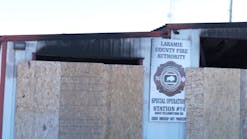Instituting a Cost Recovery Program for Fire & Life Safety Inspections
I don't know a fire marshal that "wants" to charge businesses for fire safety inspections as every time we enter a building, we're likely going to cost the owner money in hazard abatement. That being stated up front, I've become a believer in the upside of such a program.
Gresham Fire and Emergency Services, located in east Multnomah County adjacent to Portland, OR, provides service to 64 square miles, including four cities and a county area comprising of approximately 140,000 residents. Our current inspectable business base is 3,003 businesses with five deputy fire marshal's covering the core functions of business fire safety inspections, investigations, new construction plan review and inspections and public education.
The staffing level is half of what it was 12 years ago while the jurisdiction has seen an unbelievable growth, with over a two-thirds increase in population and a one-third increase in business base during this time period. Most likely your department has or is experiencing similar growth and funding issues.
In an effort to ensure due diligence in our inspection program during this staffing loss, we tried the self-inspection route for moderate and low hazard occupancies. We developed and utilized a brochure to lead the business occupants through the self-inspection and asked them to return a supplied postage paid card when completed. Our experience was disappointing to say the least. Many simply didn't comply and those that did weren't telling us the truth, as program evaluation inspections showed.
Six years ago, with another era of funding losses on our department's horizon, and in an effort to stabilize our life safety workforce, I successfully passed a fee for service, or "cost recovery" program through three of the city councils we serve. This took a lot of leg work, political tact and great communication with our business community.
Looking at other jurisdictions that had instituted the same type program, I found some programs to be cumbersome and generally unmanageable. So I developed a flat fee program based on hazard. For example a small office (800 square feet) would be ultra low; a larger office or 7-11 convenience stores would be low; a Lowes or Home Depot moderate; and a Micro Chip or Chemical plant would be classified as high hazard. I developed our hazard designations utilizing the International Building Code and the National Fire Protection Association Standard 13.
Our fees are indexed every year for inflation and currently stand at:
- Ultra low: $45
- Low: $93
- Moderate: $366
- High Hazard: $607
Re-inspection fees are $45 for the first and $93 for the second re-inspections. If hazards aren't abated at the second re-inspection, a $487 non-abatement fee is attached and it recurs every month until hazards are cleaned up. We also charge for business license inspections which are now $93 and we have special use permit fees as well.
Our inspection forms contain a small box designating the hazard classification of the business and the fee to be charged, and all billing is handled through Gresham's Finance Department via mail.
The result is a program life collection rate of about 96 percent and a life safety staff that is nearly fully funded by this program, along with the contracts we have with our building departments for plan review and inspection services. It's nice to go through a budget process and see these positions basically untouchable.
The best part of this process and why I say I've become a believer in this type of program is that we have a much safer business community with a greatly reduced commercial fire incidence rate. Hazards are not only being abated, but staying abated, because of one simple reason: the business owner know that re-inspection fees will incur if they have hazards and thus the inspection fees speak loudly in the favor of safety. Our collection rate has also remained high as we lien the property if fees are not paid and our businesses, with education, have come to appreciate why we inspect and are highly supportive of the program.
GUS LIAN is the Life Safety Chief and Fire Marshal for Gresham Fire and Emergency Services in Oregon, where he has served for 13 years with the first seven as deputy fire marshal. Gus' career includes construction and fire protection engineering and he worked for 14 years in the nuclear industry.





